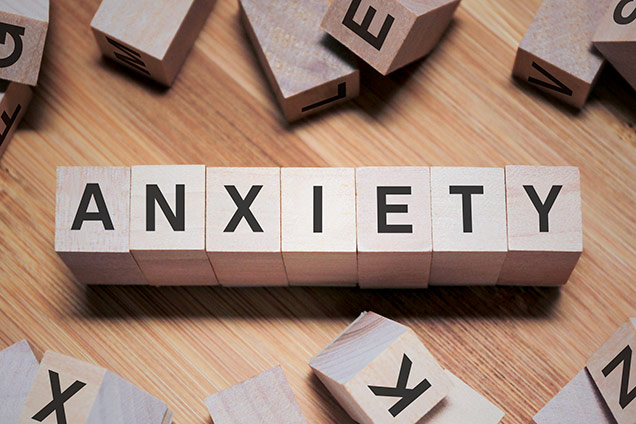[ad_1]
In this article, we will discuss the importance of finding a reason to live and why choosing to stay alive is worth it. We will explore the various factors that can contribute to a person’s will to live and how finding purpose and meaning can have a profound impact on one’s mental health and overall well-being.

What are the benefits of finding a reason to live?
Finding a reason to live can have a significant impact on a person’s mental health and overall quality of life. When individuals have a sense of purpose and meaning, they are more likely to experience feelings of fulfillment and satisfaction. Having a reason to live can also provide a sense of direction and motivation, which can help individuals overcome challenges and adversity. Additionally, having a reason to live can promote resilience and the ability to bounce back from difficult experiences. It can also improve one’s self-esteem and confidence, leading to a more positive outlook on life.
How Can Someone Find a Reason to Live?
Finding a reason to live is a deeply personal journey that varies from person to person. It often involves exploring one’s values, passions, and interests to identify what brings them joy and fulfillment. This may involve engaging in activities that promote a sense of purpose, such as volunteering, pursuing hobbies, or finding a meaningful career. Connecting with others and building meaningful relationships can also contribute to finding a reason to live, as social support and connection can provide a sense of belonging and purpose. Seeking therapy or counseling can also be beneficial in helping individuals navigate their thoughts and feelings to uncover their reason to live.
What are some common challenges to finding a reason to live?
One common challenge in finding a reason to live is the feeling of hopelessness and despair, which can make it difficult for individuals to see beyond their current struggles. Mental health conditions such as depression and anxiety can also impact one’s ability to find a reason to live, as they can cloud one’s thoughts and emotions. Additionally, societal pressures and expectations can create barriers to finding a reason to live, as individuals may feel overwhelmed or lost in the pursuit of meaning and purpose. Overcoming these challenges often requires patience, self-reflection, and seeking support from others.
Why is choosing to stay alive worth it?
Choosing to stay alive is worth it because life is filled with endless possibilities and opportunities for growth and personal development. By choosing to stay alive, individuals can experience the joys and beauty that life has to offer, as well as build meaningful connections with others. It also allows individuals to contribute to their communities and make a positive impact on the world. Choosing to stay alive means embracing the potential for change, healing, and transformation and refusing to let difficult circumstances define one’s future.
Conclusion
Finding a reason to live is a crucial aspect of maintaining good mental health and overall well-being. It provides individuals with a sense of purpose, direction, and motivation, which can lead to a more fulfilling and satisfying life. By exploring one’s values, passions, and interests and seeking support from others, individuals can uncover their reason to live and choose to stay alive, embracing the potential for growth, change, and happiness.

FAQs
1. I’ve tried various activities and hobbies, but I still feel empty. What can I do?
If you’ve tried various activities and hobbies but still feel empty, it may be helpful to explore your thoughts and feelings with the guidance of a therapist or counselor. Sometimes, underlying mental health conditions or unresolved issues may be impacting your ability to find a reason to live. Seeking professional support can provide valuable insight and strategies for navigating this challenge.
2. How can I overcome feelings of hopelessness in my search for a reason to live?
Overcoming feelings of hopelessness in your search for a reason to live may involve practicing self-compassion and seeking support from others. Engaging in mindfulness and self-reflection can also be beneficial in cultivating a sense of hope and purpose. Additionally, connecting with supportive individuals who can provide encouragement and guidance can help shift your perspective and open up new possibilities.
3. I feel pressured to find a reason to live by others. How can I navigate this expectation?
If you feel pressured to find a reason to live by others, it’s important to remember that this is a personal journey that takes time and self-discovery. Setting boundaries and communicating your needs to those around you can help alleviate the pressure and allow you to explore your reasons for living at your own pace. Surrounding yourself with understanding and supportive individuals can also provide a more nurturing environment for this exploration.
4. How can I build meaningful connections with others to help find a reason to live?
Building meaningful connections with others can involve engaging in activities and communities that align with your values and interests. This may include joining a club or group related to a hobby or passion, volunteering for a cause you care about, or participating in social events and gatherings. Open and genuine communication, as well as being open to new experiences and perspectives, can also foster deeper connections with others.
5. What role does self-reflection play in finding a reason to live?
Self-reflection is a valuable tool in finding a reason to live, as it allows individuals to explore their thoughts, emotions, and experiences in a deeper and more introspective way. Through self-reflection, individuals can gain insight into their values, passions, and desires and uncover what gives their lives meaning and purpose. This self-awareness can guide individuals in making choices and decisions that align with their reasons for living.
[ad_2]







